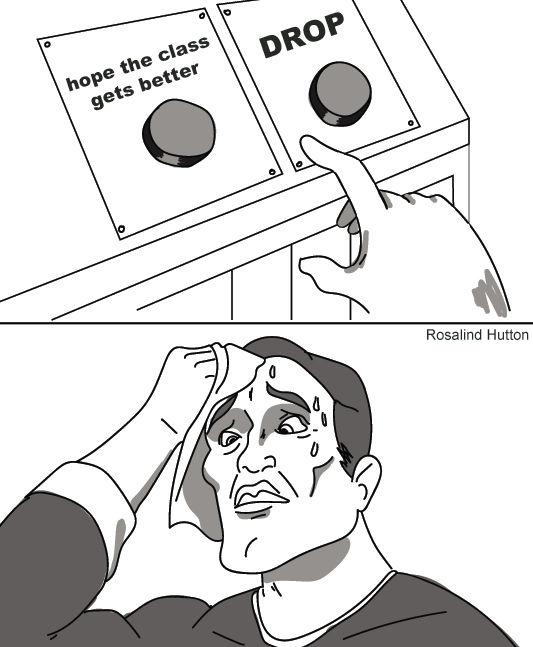The time period Mississippi State University students have to make a judgment on which classes to drop out or add on is ludicrous. According to the MSU Office of the Registrar’s website, there is a five day window between when classes start and when students can drop them without any penalty. That period should be extended.
When you walk into a classroom on day one, what you see may not be what you get throughout the rest of the semester. It can sometimes be a challenge to gauge the difficulty of a class from just a syllabus and two or three classes worth of brief introductions.
Suppose a teacher’s guidelines for projects and major assignments are so vague as to be a detriment to the student. Suppose an instructor can bluff their way through the first week, but soon it becomes clear this person cannot convey the material effectively.
These are extreme hypothetical situations. I should also clarify I have no vendetta against any professor; however, even if a professor is perfect, other mitigating factors can come up after the initial five-day period. For example, a student could get hired at a job they only applied to as a long shot, or another class might have someone drop, opening up a slot a student was not expecting.
Besides extending the period for drop dates, it should be easier for students to gain more details about a class and teacher than by going to RateMyProfessor or trusting random gossip. The University of Michigan has a system that would be ideal for this purpose.
The Atlas AI aggregates student evaluations of classes and organizes them in an easily searchable database any student can access. It does not detail every little aspect, but rather, it focuses on key categories such as workload, clarity and expectations.
MSU already has switched to online teacher evaluations. If the school could set up an Atlas-esque system, students would find it much easier to determine their courses every semester. For example, seniors during their final semester needing only a few more electives could search courses by easiest, allowing them to spend less time on classwork and more time finding a great job right off the bat. Is it not in the interest of the university to set its upcoming graduates up for success as much as possible?
Students are responsible for carrying out their due diligence on their schedule when they sign up. Figuring out which classes you need to graduate is something that should be performed well in advance of actually setting foot in the classroom. On the other hand, life is unpredictable, and no one can say what the next day will bring.
I am not pleading for teachers to make their classes easier or for the university to extend the drop date an absurdly late date like March, yet is it too much to ask for more clarity and grace in the process of signing up for classes? I would be thrilled if teachers would post the syllabus for the class on Banner, but only a handful do so when class registration opens.
The University of Alabama’s deadline is seven days, just two more than ours, but their students had the advantage of the weekend to mull everything over, while ours had to figure it out while juggling classes and everything else.
If we had two weeks to decide when to drop or a system that displayed basic characteristics about a class, there would be a lot less stress over class schedules for students. The administration should work to at least extend the deadline for Fall 2020.
Categories:
Add and drop deadlines should be extended
0
Donate to The Reflector
Your donation will support the student journalists of Mississippi State University. Your contribution will allow us to purchase equipment and cover our annual website hosting costs.
More to Discover






